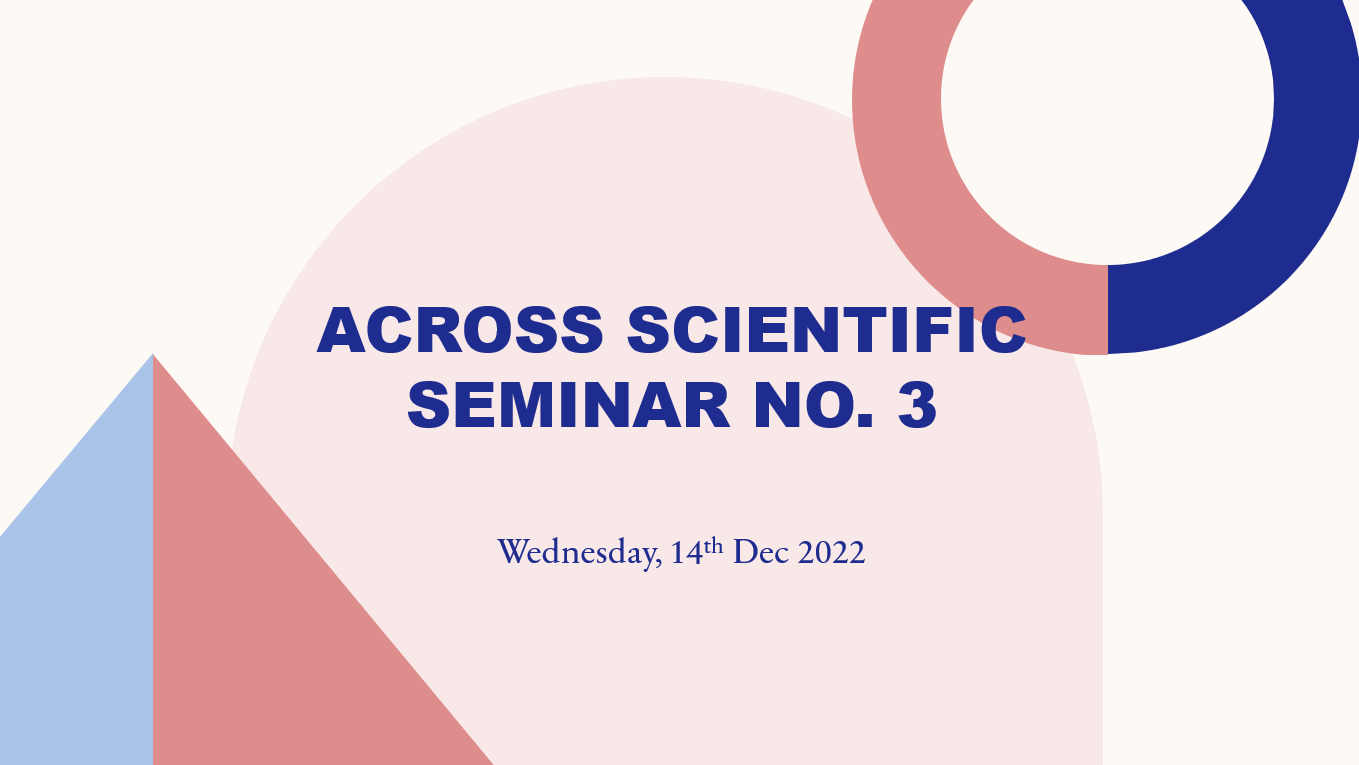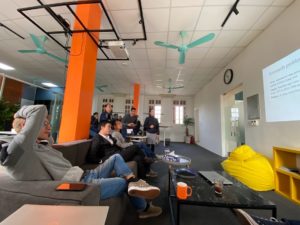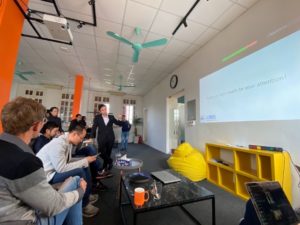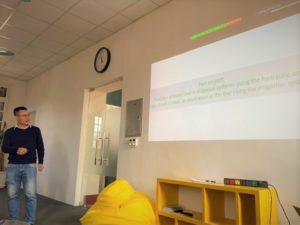
The third monthly seminar has been organised on Wednesday, Dec 14th, 2022 at ACROSS laboratory, 5th floor, A1 Building, Thuyloi University, 175 Tay Son, Hanoi. Speakers were representatives of 3 short term projects selected through the Call for Projects launched in Oct 2022 funded by the laboratory.

Project “Processing imbalanced data to improve the water level forecasting quality” – Dr. Nguyen Thi Kim Ngan, Thuyloi University
Introduction: River level is closely related to flood level. Early forecasting of water levels in rivers helps to predict flood levels, supports people in planning on flood prevention and limits harmful effects. Nowadays, with the development of Information Technology, many machine learning models have been applied to water level forecasting problems, for example, linear regression model, long short-term memory model, Support Vector Machine, … On days when the river water levels are low, the forecast results are quite accurate. But on days when the river levels are high, the forecast results are much different from reality. The reason for this is that there are fewer rainy days (high river level) than normal days (low river). So, the training dataset is imbalanced between rainy days and normal days. In this context, we study imbalanced data processing methods to improve the water level forecasting quality at Nhat Le river, Quang Binh.

Project “Development of an IoT water quality monitoring station (WQMS) manager In Cau Bay river” – Dr. Pham Duc Dai, Thuyloi University
Introduction: The objectives of this project is to extend the IoT framework designed in the previous project to an open IoT WQMS manager. WQMS manager allows the management of sensor nodes remotely over the Internet and the quick setup of the nodes via HTTP protocol. To collect data, the sensor nodes and data server(s) are also needed, as shown in Figure 1. The configurations of WQMS (sensor nodes) are stored in the database of WQMS manager and can be modified via the REST API and web user interface. And then this configuration is sent back to the Sensor nodes for updating parameters such as the port, rate, sensor type via HTTP. The measurement data are also sent over HTTP or MQTT (Message Queuing Telemetry Transport) to an external data server for the general information as web display, mobile apps.

Project “Development of coupling between data-driven model and lateral distribution method for simulating flow dynamics in the irrigation and drainage system: an application in the Bac Hung Hai irrigation and drainage system” – Dr. Pham Van Chien, Thuyloi University
Introduction: The results of the previous project named “Prediction of water level in irrigation systems using the hydraulic and data-driven models: an application in the Bac Hung Hai irrigation system” showed that the long – short term memory model predicted very well the water elevation at upstream and downstream locations of ten culverts inside the system with high accuracy. However, this kind of data-driven model can not provide any information on flow dynamics (e.g., flow velocity, water discharge) and the amount of water throughout the river sections, resulting in significant difficulties in determining quantitatively how much amount of water resources can be used for water supply or how much of water that river can carry out when flooding. To overcome these issues, a commercial hydraulic software named MIKE 11 was implemented for the main rivers and tributaries in the Bac Hung Hai irrigation system. The hydraulic modeling parameters were calibrated and validated using water elevation only. Although the hydraulic model allows to representation of the operation rules of different culverts inside the system, it is still expensive in terms of computational time and transferring from academic to practical applications. Thus, a hybrid model or coupling between the LSTM model and a hydraulic model that allows us to take into account the high accuracy and advances of the data-driven model as well as computational costs and efficiency of the hydraulic model is still challenging in the Bac Hung Hai irrigation and drainage system.
For more information about the seminar, please contact Baptiste Lesquoy, Email: baptistelesquoy@protonmail.com





